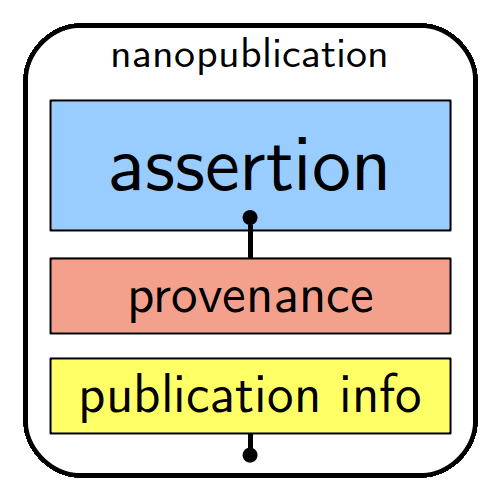In recent years, Europe’s landscapes have become the victims of extreme events – ranging from floods to droughts – that have caused considerable damage to nature as well as human society.
With the aim to tackle such severe circumstances, the newly-started Horizon Europe-funded project SpongeBoost will be working towards protecting and promoting natural sponge landscapes.
Within SpongeBoost, the functional capacity of sponge landscapes is to be enhanced through building upon existing solutions and their large-scale implementation, but also through innovative approaches.
Pensoft is among the partnering institutions within SpongeBoost and serves as the leader of Work Package #5: “Communication, dissemination, exploitation, showcasing best practices and networking”. WP5 will aim to contribute to the project’s mission by building the overall project identity, building a strong network, and providing comprehensive knowledge and well-packaged information to targeted stakeholders.
The project
Funded by the European Union’s Horizon Europe research and innovation programme with a budget of EUR ~3 million, the project is coordinated by the Helmholtz Centre for Environmental Research (UFZ) and will be developed with the active participation of 10 partnering institutions from seven countries across Europe. Having been officially launched in January 2024, SpongeBoost is to wrap up in December 2027.
The project is part of the EU mission “Adaptation to Climate Change”, whose task is to support EU regions, cities and local authorities in their efforts to build resilience against the impacts of climate change.
“The protection and revitalisation of wetlands, particularly through peatland rewetting and river floodplain restoration, plays a central role in this,“
says project manager Mathias Scholz from the UFZ.

To officially kickstart the project, the first consortium meeting took place on 21-23 February in Leipzig, Germany. The kick-off meeting saw all 10 partnering institutions meet in person to officially lay the foundation of a promising collaboration that will flourish over the next four years.
The joint mission before the newly formed consortium is to enhance the natural sponge function of wetlands and soils in Europe, aligning with EU policies for climate adaptation, disaster risk reduction and biodiversity. To achieve that, the project plans to employ both bottom-up and top-down approaches, which will foster networking and synergy at the regional and EU level.
SpongeBoost will focus on five main objectives over the next four years:
- Conduct a comprehensive literature review to create a standard reference catalogue for securing and enhancing sponge functions in adaptation to climate change. This catalogue will integrate social, economic, technical, and ecological effects and serve as a widely used resource across Europe and beyond.
- Build a knowledge base on existing approaches for enhancing sponge functions, and highlight the reasons for success or failure. The goal is to enable regions and communities to replicate effective transformative solutions. Meanwhile, the consortium is to facilitate networking initiatives with other projects and identify suitable pilot sites for monitoring long-term success using the results of previous projects.
- Work on the implementation, tests, refinement, and adjustment of best practices and innovative solutions through EU-wide case studies. The goal is to enhance climate resilience to extreme events and enable upscaling from local to EU levels.
- Develop a roadmap with practical tools to empower stakeholders, drive transformative change, and integrate sponge solutions into regional, national and European climate adaptation processes to achieve EU Green Deal targets.
- Connect communities and compile online resources for climate change adaptation. The goal is to facilitate access and combine a library of tools for restoration and share research findings on soil, water, and groundwater interconnection for replication across Europe.
In addition to leading the “Communication, dissemination, exploitation, showcasing best practices and networking” work package at SpongeBoost, Pensoft is to also assist the Environmental Action Germany (DUH) in the implementation of different innovative communications methods and ideas meant to support the project’s goals.
As part of the creative communication strategy, DUH will take the lead in the development of a “SpongeBooster superhero” character. By creating such a character that will be also featured in comics, the team will translate complex concepts into clear visuals and engaging narratives, thereby shaping the project’s visual identity and letting non-experts join the discourse. The Sponge Booster is to serve as an innovative method to disseminate project knowledge and address barriers with humour while fostering dialogue and avoiding potential conflicts.
International Consortium
The SpongeBoost project brings together a team of 10 partners from seven European countries, spanning research, policy, and management fields. The consortium members, who individually represent various restoration projects, will join forces and expertise to promote collaboration, knowledge exchange and synergies across European regions, to ultimately instil a lasting positive impact on sponge restoration for climate change adaptation.
- Helmholtz Centre for Environmental Research (UFZ), Germany
- Pensoft Publishers, Bulgaria
- Wetlands International, the Netherlands
- University of Tartu, Estonia
- Jan Evangelista Purkyně University in Ústí nad Labem, Czech Republic
- Iberian Center for River Restoration, Spain
- Portuguese Society for the Study of Birds, Portugal
- RWTH Aachen University, Germany
- Stroming BV, the Netherlands
- Environmental Action Germany, Germany
Stay tuned for more project information on the SpongeBoost website coming soon at: www.spongeboost.eu/. In the meantime, you can follow SpongeBoost on social media on X and Linkedin.

































